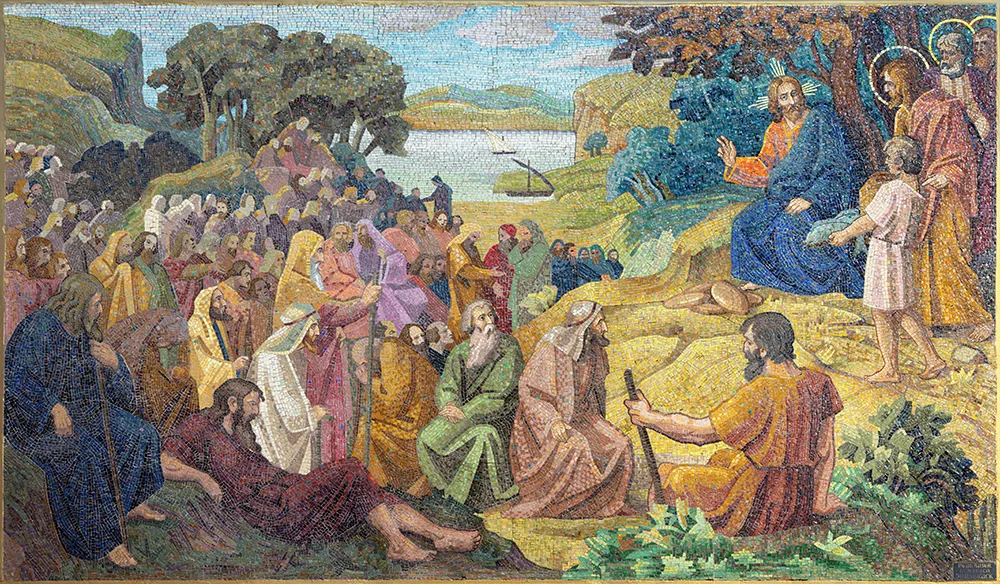Jijo Kandamkulathy, CMF
Claretian Publications, Macau
Mk 6:1-15
17th Sunday in Ordinary Time – Year B
Gospel Reflection
The events leading to the solemn proclamation of Jesus that he is the bread of life begin with the feeding of the five thousand. The whole scene is set to mirror the journey of Israel out of Egypt and the resolution of the food and water crisis in the desert of Sinai through the intercession of Moses, “the Prophet par excellence.” The sequence of this discourse will culminate in establishing Jesus as the Moses of the new community. We will meditate on the complete import of this discourse in the weeks to come. However, beyond the theological significance of this discourse, there are some practical imports of the story that should move us to contemplation and action.
Jesus was solving a hunger problem. This is a problem the world is facing now, particularly with the raging of the pandemic for over a year. In the gospel of Mark, the disciples find an easy solution to the problem. Let them find their bread. This is irresponsible. People followed them, listening to the Lord’s teachings, but when it comes to taking care of their physical hunger, washing their hands away is a sign of a hypocritic leadership. Jesus knew he had to do something.
From his childhood, Jesus might have been well familiar with the shortage and abundance of bread. No one would know that better than the one born in the “house of bread,” Bethlehem—the one who became bread himself. He had suffered hunger for 40 days, and he was so hungry that he was tempted to turn stones into bread and eat. He knows what hunger is. During this pandemic, he must have been close to the hungry than anyone else can be.
What does he do in a moment of shortage? His hands were empty but for grace. He inquired of people what food they had. He blessed what they offered and encouraged them to share what they had. It began with the bread of a little boy. Interestingly this passage does not say that Jesus multiplied the bread. Probably, he did not have to multiply. Everyone had kept more than one required to eat for fear of running short. One adult’s whole meal would not be more than three loaves (Luke 11:5). The boy had five, more than what he could eat! Five loaves and two fish symbolize the Old Testament five books of Torah, with the two fish representing the books of Wisdom and Prophets. Notwithstanding that interpretation, this miracle is an invitation for increased sharing. When they shared what they had, there was more than what was required. The leftover was twelve baskets full, meaning that he had enough to feed the whole of Israel. We are reminded to look at our hoardings and our wastages!
I often imagine a conversation of the little boy who offered the food with his mother, “Mom, I gave the five loaves of bread and two fish that you sent with me to the Master, and he was able to feed 5,000 men with my little food.” The mother might have replied, “Of course, I sent some extra food with you, so that you could share with the boys who might not have food. But if Jesus gave that to five thousand men, you have become part, in fact, the beginner of this miracle. You know, sharing is a miracle!” Then, the mother might have concluded with a Magnificat of her own while the boy was singing his Magnificat, “My food could increase!”
It was a child who was able to offer his little food. An adult would have thought about the stupidity of giving the little he had. He knows that it would not suffice even for five people. Or he might even have hidden it as a reserve for himself for fear of going hungry if he shared. Once again, here is an invitation to become like children trusting in the providence of God. There is an invitation in the eyes of every needy child to share whatever you can!


 Follow
Follow


